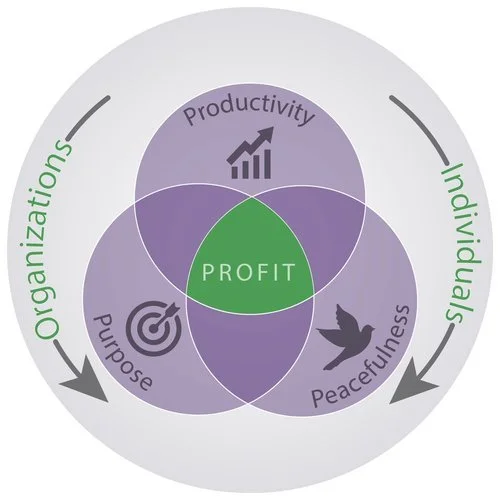Burnout Prevention: Check in With Your Why
Nietzsche once wrote, “He, who has a why to live for, can bear with almost any how.”
Around 10 years ago, the world of corporate motivational speaking was buzzing with the concept of finding your Why — your purpose. Led by Simon Sinek and followed by many others, myself included, finding your Why is an effective way to find fulfillment and success in your life and career.
Have you given your Why much thought since the world turned on its head? If you are still working for your old Why, you could be working for a purpose you no longer believe in, and feeling burned out as a result.
Here’s why you should revisit your Why to stay mentally healthy at work.
Why Have a Why?
Knowing your Why (or purpose) is one of my three key tenets of success:
Productivity: Having the skills you need to do your job
Purpose: Feeling connected to a higher meaning
Peace: Focusing effectively and collaborating well with others
Leaders who embody their purpose inspire others to do the same. They excel at getting people on board to fight the same cause or work towards the same goals. Knowing we are doing something important makes us feel good about ourselves. It provides mental clarity and the energy to navigate organizational politics and advocate for career progression.
Being connected to a higher purpose, as Nietzsche pointed out many years ago, is also a vital burnout-beating technique. It gives us good reason to persevere in the daily grind, reducing feelings of hopelessness, despair, and overwhelm on our journey to achieve our goals.
Why Revisit Your Why?
You’ve been through a lot over the last decade. Not only have you matured, you’ve experienced major life events like marriage, kids, bereavement, and downsizing. There was the pandemic, a move to at-home or hybrid working, loneliness or illness, and relentless uncertainty.
Time changes what is important to us.
You may still be working for what was important to you ten years ago.
I’m not going to run through the process of how to find your Why in this article; there are many resources and courses available to help you do that. I will, however, share the Why statement I wrote back in 2017:
“I want to help teams and individuals to be more productive, peaceful and purposeful, to boost organizational profitability and individual success.”
Over the last few years I have focused less on leadership skills and more on burnout prevention and self-advocacy, but these achievements still feed into my ultimate Why. My experience of the pandemic helped galvanize my Why.
It’s not the same for everyone.
Has Your Why Changed?
Perhaps you are an IT Security Consultant who used to feel excited about fighting cyber crime. You saw the world and advised government agencies on best practices. Working from home during the pandemic enabled you to reconnect with your teenage dream of using art and music to enrich the lives of others. Your IT work now feels kind of meaningless, soul-sucking, and overwhelmingly boring at times.
It’s likely not realistic for you to drop the consultancy and become a creative arts teacher, but you may be able to work towards it while maintaining your revenue stream, for example by reducing your hours or switching to a higher-paid but harder job. The knowledge that you are using your existing consultancy skills to help you achieve your dream will make it easier for you to tolerate what has become a very tiring way to spend your day.
Use a Why to Motivate Yourself Through Menial Tasks
While we’re on the subject of motivation, you can also use small Whys as an effective strategy to get through the tasks you hate. Here’s how:
Conclusion
Knowing your Why is just as important as ever, but so is the awareness that our Why sometimes evolves as life changes around us. If you are feeling overwhelmed by a job that used to light your fire, perhaps your Why no longer suits you. Or perhaps it was never really your true Why.
Taking the time to meditate on your purpose in life will help your mental health and steer you away from overwhelm and burnout. Let me know in the comments below if the advice in this article strikes a chord with you.

